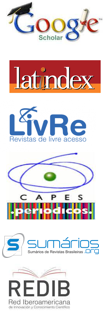Letramento Literário na Pré-Escola de Unidades Educacionais Municipais de Cuiabá e Várzea Grande
DOI:
https://doi.org/10.17921/2447-8733.2024v25n3p552-559Resumo
Esta pesquisa visou analisar a estrutura educacional na pré-escola, sob a perspectiva da Base Nacional Comum Curricular (BNCC). Concentra-se no cenário das instituições educacionais em Cuiabá e Várzea Grande. O objetivo deste estudo foi compreender como ocorre a efetivação dos direitos de aprendizagem e o letramento literário no currículo da Educação Infantil da Escola Cuiabana e Várzea-grandense tendo a criança como “sujeito de direitos” e protagonista do seu processo de aprendizagem. Teve como procedimento a pesquisa de campo, de abordagem qualitativa, embasada em entrevistas semiestruturadas, aplicadas aos professores que atuam exclusivamente com a pré-escola, e pautada em documentos como a BNCC, a Política da Escola Cuiabana e os Documentos Orientativos da Educação Infantil de Várzea Grande. Além desses documentos foram utilizadas referências teóricas importantes, como as de Vygotsky (1996), e Smolka (2013), para contribuir com o debate atual sobre as teorias curriculares aplicadas à pré-escola. A análise dos dados se pautou em Bardin (2016), análise do conteúdo baseada nos princípios das políticas educacionais dessas duas cidades, buscando compreender a implementação efetiva dos direitos de aprendizagem, bem como o desenvolvimento de competências e habilidades durante as práticas pedagógicas. Foi observado que o letramento literário na pré-escola das instituições educacionais pesquisadas evidencia um papel significativo no processo de aquisição da cultura da leitura e escrita no contexto da Educação Infantil.
Palavras-chave: Aprendizagem. Currículo. Práticas Pedagógicas
Abstract
This research aimed to analyze the educational structure in preschool, from the perspective of the National Common Curricular Base (BNCC). It focuses on the scenario of educational institutions in Cuiabá and Várzea Grande. The objective of this study was to understand how the implementation of learning rights and literary literacy occurs in the Early Childhood Education curriculum of the Cuiabá School, with the child as the “subject of rights” and protagonist of their learning process. The procedure was field research, with a qualitative approach, based on semi-structured interviews, applied to teachers who work exclusively with preschool, and guided by documents such as the BNCC, the Cuiabá School Policy and the Guiding Documents for Early Childhood Education in Várzea Grande. In addition to these documents, important theoretical references were used, such as those of Vygotsky (1996) and Smolka (2013), to contribute to the current debate on curricular theories applied to preschool. Data analysis was based on Bardin (2016), a content analysis based on the principles of educational policies in these two cities, seeking to understand the effective implementation of learning rights, as well as the development of skills and abilities during pedagogical practices. It was observed that literary literacy in preschool in the educational institutions studied plays a significant role in the process of acquiring the culture of reading and writing in the context of early childhood education.
Keywords: Apprenticeship. Curriculum. Pedagogical Practices
Downloads
Publicado
Como Citar
Edição
Seção
Licença
Copyright (c) 2024 Revista de Ensino, Educação e Ciências Humanas

Este trabalho está licenciado sob uma licença Creative Commons Attribution-NonCommercial-NoDerivatives 4.0 International License.


